Our Top 10 Brewing Tips (2025)
Here at RiSE, we are on a mission to help educate coffee lovers as to how they can enjoy their favourite roasters in the comfort of their own kitchen. No matter your coffee brewing preference; whether you have a shiny new espresso machine, French press, Aeropress, Chemex or other brew method (there's a long list and you don’t need a load of fancy tools) brewing better coffee at home is one of the simplest things you can do to improve your day. Try out these simple tips to improve your coffee game.... And we'd love to hear your thoughts in the comments!

COFFEE BREWING TIP #1: SWITCH TO WHOLE BEAN COFFEE
Seems obvious, but if you want to get the most out of your at home coffee brewing experience, buying whole bean coffee is a must. Grinding your own beans at home ensures you get the freshest cup of coffee possible. Having a good burr grinder is often overlooked, but crucial part of the brewing process, check out why here. The scientific reason behind it is due to the fact that whole bean coffee has not yet begun to go stale due to the exposure to air. Ground coffee will essentially start going stale as soon as it has been ground. Plus, having whole bean coffee in the house also allows you to control the grind size and style. But, there's no denying that buying pre ground coffee has its advantages too when it comes to convenience, ease-of-use, and how long it takes you to actually make your coffee in the morning. Luckily, when you buy pre-ground coffee from us at RiSE coffee box, or from our online coffee shop, the coffee is roasted to order, which means it's as fresh as it gets!
COFFEE BREWING TIP #2: BUY SMALLER AMOUNTS OF COFFEE, MORE FREQUENTLY
People are always talking about the freshness of coffee, but if you’re searching for the freshest beans, maybe try varying your buying habits. Park that bulk purchase of 1kg and try buying in smaller amounts. We send out 500g in each RiSE coffee box in 250g bags - which is around 60 cups of coffee or two a day. We are all for sustainability, which buying in bulk supports, but there's no denying your coffee will lose its freshness, faster.

COFFEE BREWING TIP #3: WEIGH YOUR COFFEE BEANS AND WATER
You've probably heard that weighing your coffee is important to perfecting the perfect brew. But getting the right water weight is equally important...
Using a pair of scales when brewing coffee is a key part of the coffee brewing process, no matter what brewing method you use. Whether you have an espresso machine (Sage, DeLonghi, etc), V60 dripper, Moka pot or even a French Press, using a coffee weighing scale is great way to improve the consistency and accuracy for your coffee.
If you love coffee and you want to achieve the best possible results when you are brewing coffee at home, then coffee scales play a major part in the preparation process. Getting the correct extraction for your chosen brewing method requires you to have started with the correct grams of coffee and water. The correct water to ground coffee ratio is extremely important. There's a tonne of great videos on youtube about this, depending on your brew method.
If you're searching for coffee scales there are a great variety of scales out there and you'll find very cheap brew scales at one end of the spectrum from about £10 – £20, and all the way up to a few hundred pounds for top level.
Our favourite scale is the Acacia pearl - slightly on the pricer side. Another great option is the Hario drip scale.
COFFEE BREWING TIP #4: REPLACE YOUR BURRS
You may have read our blog on why you need a burr grinder and why they are preferred to blade / manual ones. Burr grinders gently crush the coffee beans ensuring they are all crushed to the same size creating uniformity in the grind. Like a good knife, the blades need to be replaced and sharpened. The lifespan of your burr grinder can vary depending on which brand you buy, but most coffee experts recommend you change the blade half way through its retailers recommended lifespan. When Alice and Ben first started RISE we went through a grinder every month (read our story here!) We're now using a Wilfa Svart Grinder and love it. Although this has reminded us, that it probably needs replacing soon!
COFFEE BREWING TIP #5: START A CLEANING REGIMEN
Be honest. How often do you clean out your machine? Keeping your coffee equipment clean is key to ensuring your coffee also tastes great. Sage recommends cleaning your machine once a week... We struggle to clean it thoroughly every week but make sure we do it at least every 2! If you are going to invest in great coffee equipment, you may as well take care of it! Your equipment will also last longer the better it is treated. It was one of our 2022 New Year Resolution tips
As a general rule, if you’re making between two and five cups of coffee a day, you need to clean most parts once a week. Some, however, such as the grinder and water tank, will only need to be cleaned once every two or three weeks.
Most other types of coffee equipment products simply require a good soak in warm water, so you don’t have to spend a huge amount of time, money or effort.
COFFEE BREWING TIP #6: DON’T BE AFRAID TO PLAY WITH VARIABLES
The beauty of coffee is their are so many variables. From brewing methods to coffee bean origins and tasting notes, there are so many elements that can change the way you enjoy your morning cup of coffee. It doesn’t have to become a science experiment and you don’t need a kitchen full of fancy coffee equipment. But be adventurous, and don't be afraid to try new things. At RISE we are all about discovery, and with coffee, the possibilities are endless.

COFFEE BREWING TIP #7: LET YOUR COFFEE REST
We often get questions about the freshness of coffee, and to be honest it's a bit of a minefield! Freshness of coffee relates to many things but one of them is resting. It was our Feb 2022 top tip! So what is resting? When green coffee is roasted it releases moisture and pockets of CO2 can get trapped inside the coffee. The little valve on the back of your coffee bag allows this CO2 gas to gently leave the bag over a period of time. One thing people don't realise is that "freshly roasted" coffee is like eating really hot food, it's just come out of the oven and you can't really taste the flavours because it's super hot!
This does depend on the roast, but most of our coffees are medium roasted and so the optimal period is 5-14 days. Once you get your bags take a look at the roast date and go from there. Most roasters we speak to say 14 days is optimal but it also depends on the brewing method. If you're going to use your beans for filter brews you can probably go for it after 7 days, but for espresso based drinks, definitely wait a little longer to allow the gas to leave. However once opened, that is when the freshness starts eroding, so don't open the bag until you are ready to go!
COFFEE BREWING TIP #8: COFFEE STORAGE
Storing your coffee beans in the right way is key to getting the most out of your coffee subscription box. There are a few ways you can maximise the quality and freshness of your coffee beans, and following a few of these tips will mean you can enjoy great coffee for longer!
Finding the right storage container is key. There are some fantastic options out there. Our favourite is Airscape Coffee Storage Canister which is an expert at keeping moisture and air out creating the most fantastic air-free environment for your coffee, keeping it fresher for longer. Other options include the OXO Good Grips Coffee Container and Fellow Canister Storage Integrated Airtight Seal. Any opaque airtight container that is stored at room temperature will work (a dark cupboard works well).
Some of the good canisters have one-way vents which are designed to allow the gasses produced by freshly roasted beans to emit out of the container. These are useful if you are receiving coffee fresh direct from us or roasters
How long can you store coffee beans? Freshly roasted coffee beans will remain at ‘peak’ freshness for around 6 weeks. However, they will remain enjoyable for up to 3 months if not longer. After this point, most people will find that the bean’s flavour and aroma will have degraded and will not be as enjoyable as a fresher bag. Freshly ground coffee has a much shorter lifespan than whole coffee beans because it has smaller coffee granules which will oxidise faster.
What about storing beans in the freezer? We think this is a bit of a myth. Storing fresh coffee beans in the freezer can have some negative consequences such as exposure to moisture which destroys the quality of the bean.
COFFEE BREWING TIP #9: TRY BREWING SIDE BY SIDE
When you are in the mood to experiment with your coffee, try using different variables and have a go at tasting the same coffee side by side. Two options to experiment with are: alternating the grind sizes slightly or experimenting with the weight of the water you add to the coffee. However you decide to experiment, you should be able to see the differences in taste or even quality. This will also help you learn what you like and what you don’t like and help you master your brewing technique.

COFFEE BREWING TIP #10: MAKE SURE YOU ARE BUYING SPECIALTY BEANS
Specialty coffee accounts for only around 3% of the worlds coffee production. Generally, specialty coffee comes from the Arabica bean and scores above 80 on a scale of 100 as certified by a coffee taster. All of the coffees in a RiSE coffee box are specialty (or 'speciality', depending on who you ask). Specialty coffee is also different to regular or commercial coffee in a number of other ways, as mentioned below, so don't be afraid to ask your local cafe a few questions the next time you grab a coffee!
-
Specialty coffee emphasises traceability and transparency of origin.
-
Specialty coffee usually favours lighter roasts (medium roasted) and showcases slightly more complex notes of coffee beans, compared to the darker bitter roasts of supermarket grade (usually Robusta) coffee.
-
Specialty coffee also demands environmentally friendly and sustainable coffee processes, and high transparency of these throughout the supply chain.

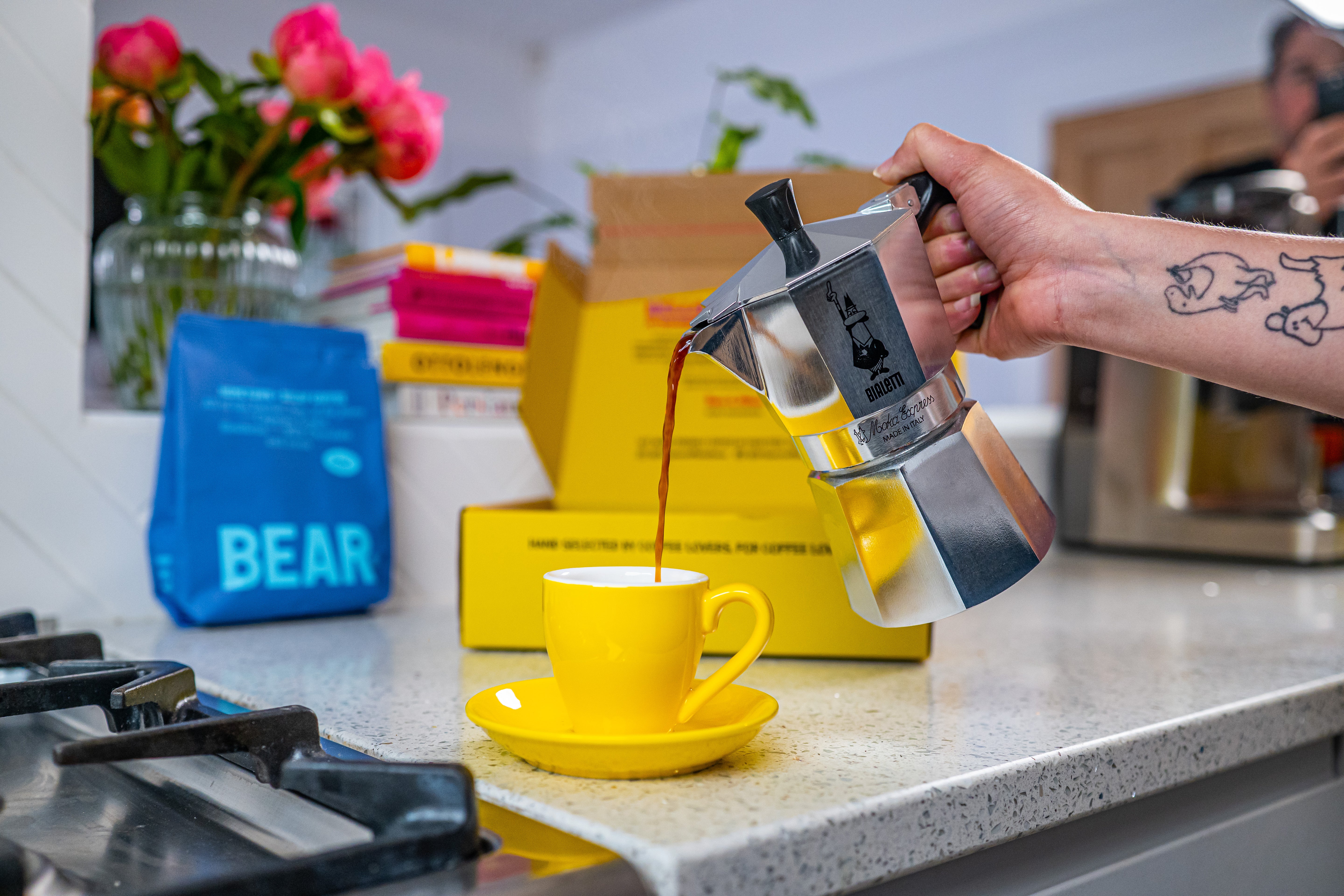
MONTHLY COFFEE DELIVERED TO YOUR DOOR
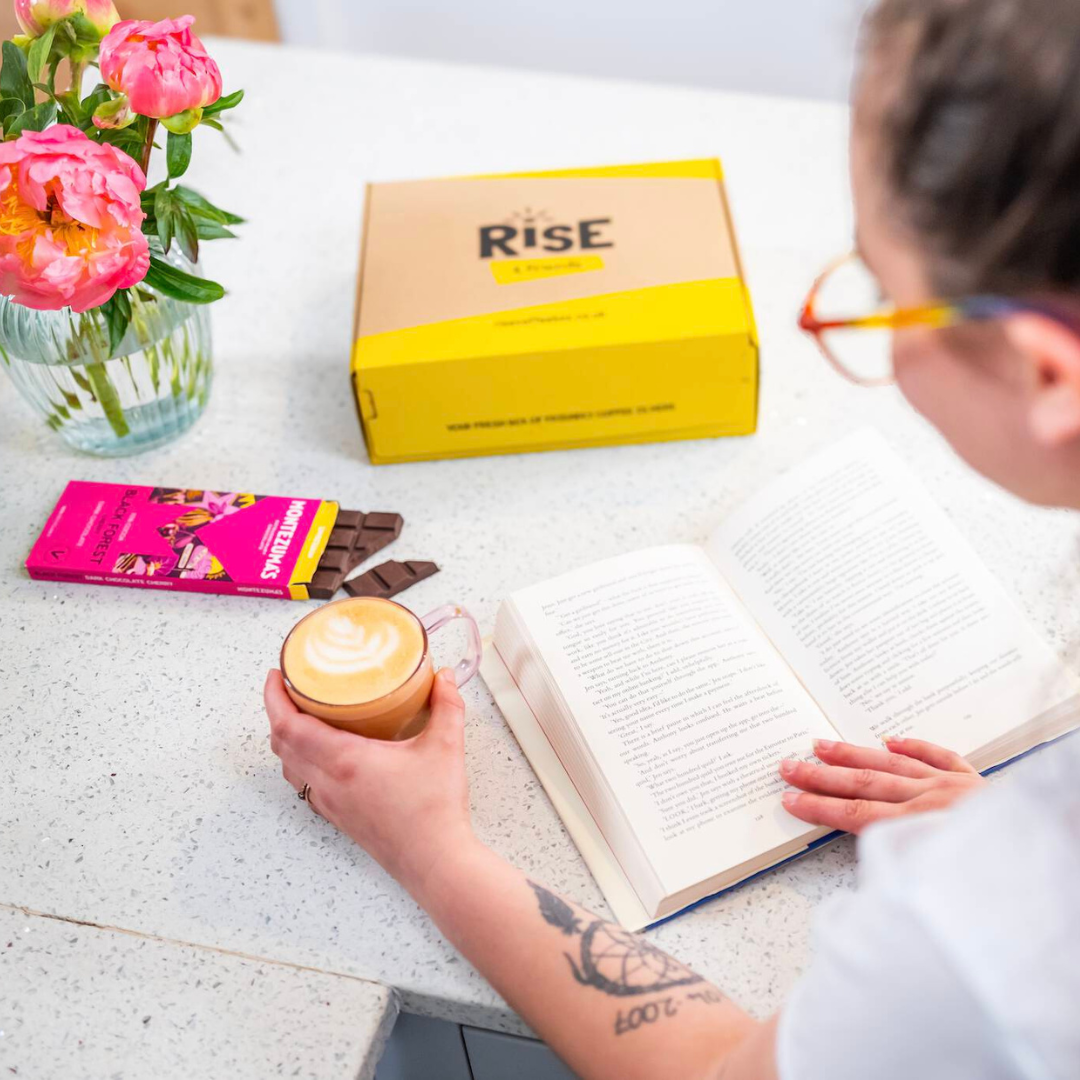








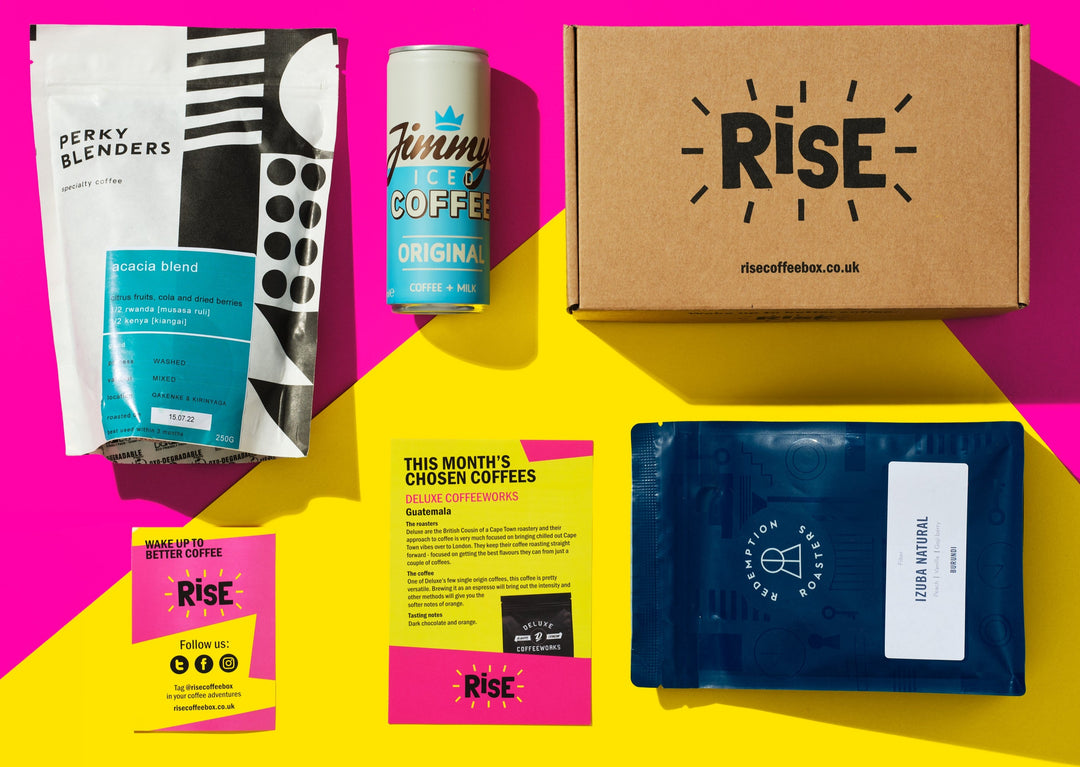
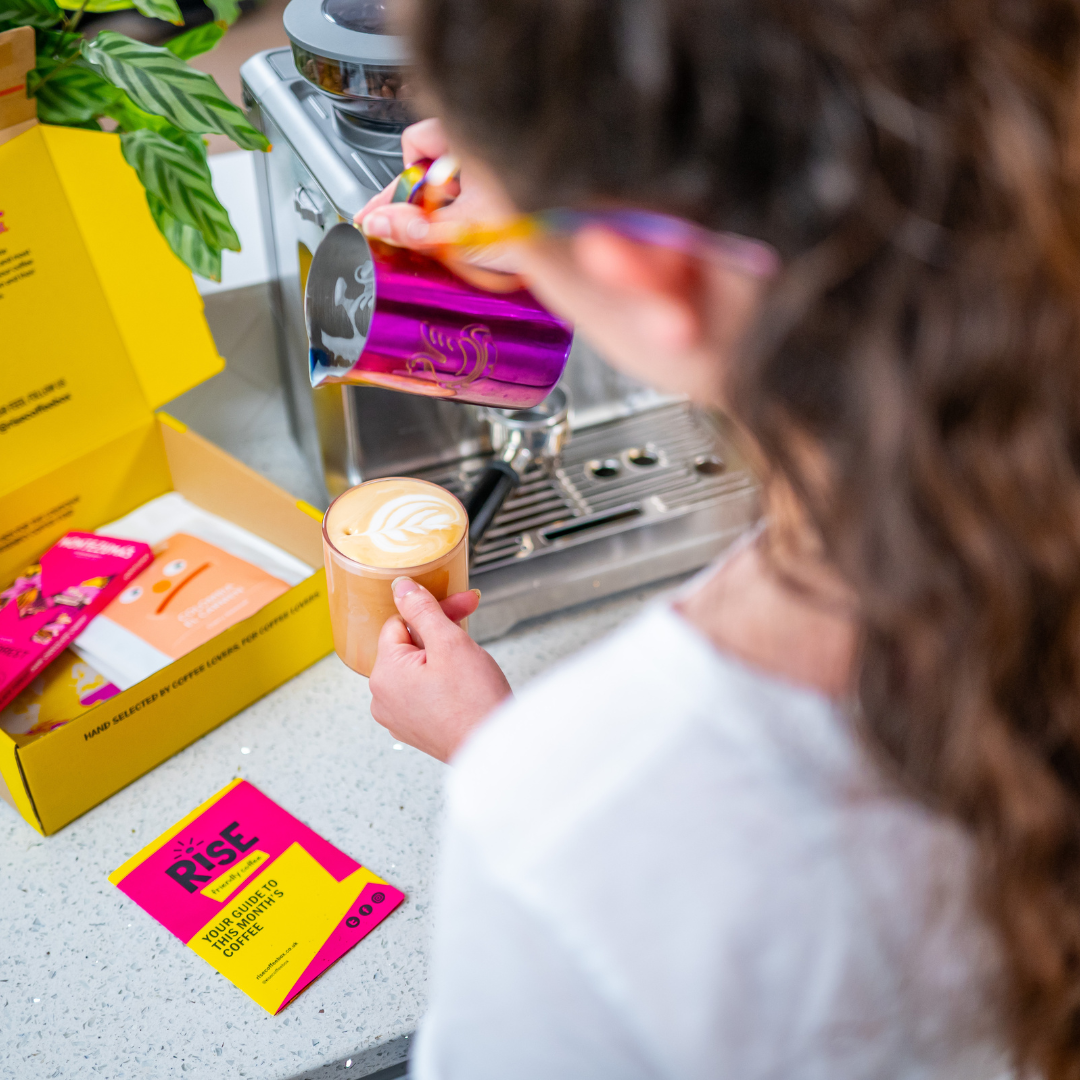
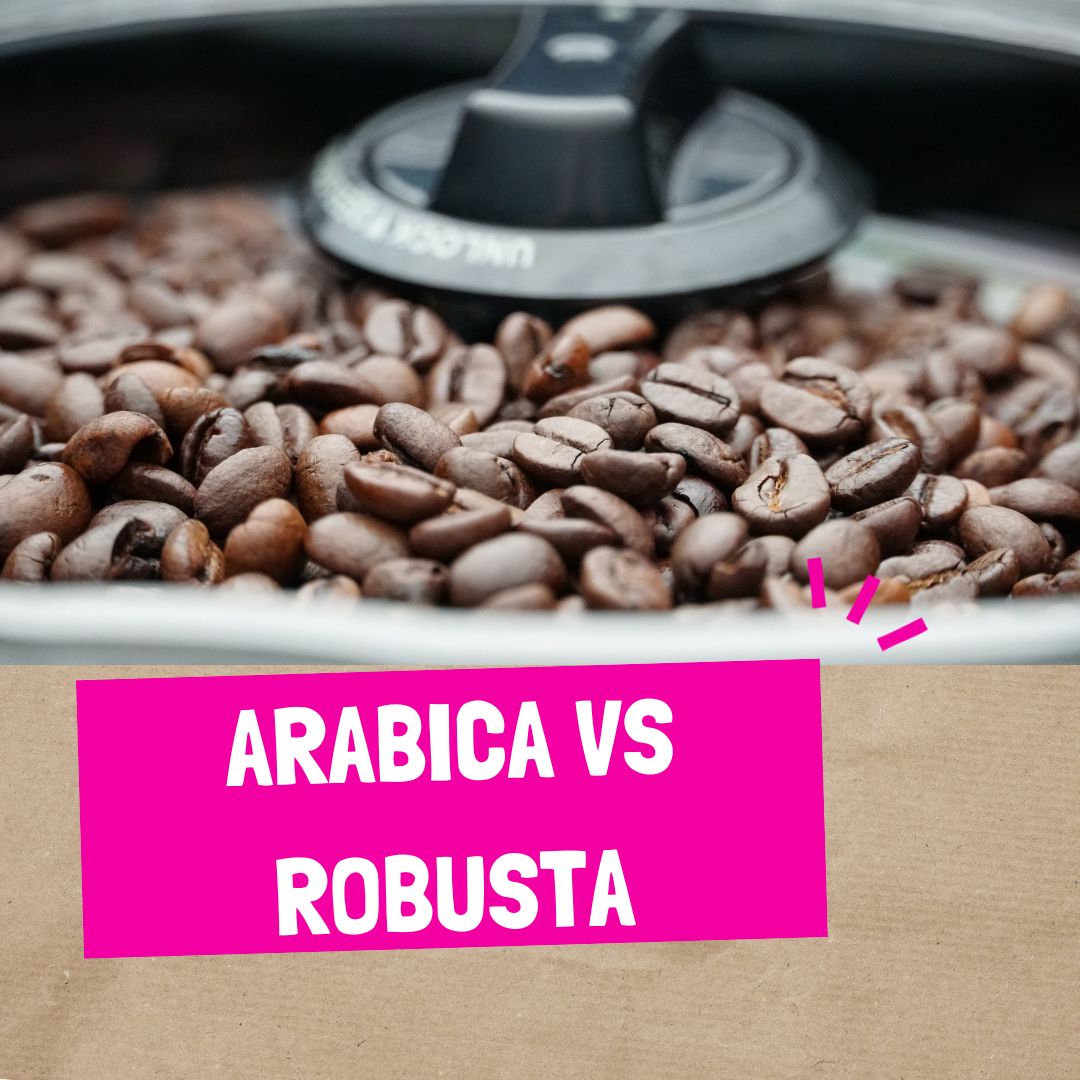


















Leave a comment